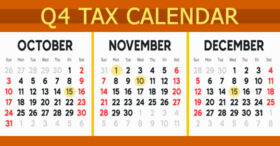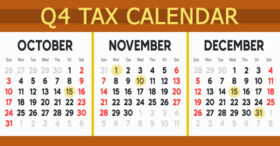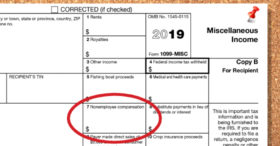The extended federal income tax deadline is coming up fast. As you know, the IRS postponed until July 15 the payment and filing deadlines that otherwise would have fallen on or after April 1, 2020, and before July 15.
Retroactive COVID-19 business relief
The Coronavirus Aid, Relief and Economic Security (CARES) Act, which passed earlier in 2020, includes some retroactive tax relief for business taxpayers. The following four provisions may affect a still-unfiled tax return — or you may be able to take advantage of them on an amended return if you already filed.
Liberalized net operating losses (NOLs). The CARES Act allows a five-year carryback for a business NOL that arises in a tax year beginning in 2018 through 2020. Claiming 100% first-year bonus depreciation on an affected year’s return can potentially create or increase an NOL for that year. If so, the NOL can be carried back, and you can recover some or all of the income tax paid for the carryback year. This factor could cause you to favor claiming 100% first-year bonus depreciation on an unfiled return.
Since NOLs that arise in tax years beginning in 2018 through 2020 can be carried back five years, an NOL that’s reported on a still-unfiled return can be carried back to an earlier tax year and allow you to recover income tax paid in the carry-back year. Because federal income tax rates were generally higher in years before the Tax Cuts and Jobs Act (TCJA) took effect, NOLs carried back to those years can be especially beneficial.
Qualified improvement property (QIP) technical corrections. QIP is generally defined as an improvement to an interior portion of a nonresidential building that’s placed in service after the date the building was first placed in service. The CARES Act includes a retroactive correction to the TCJA. The correction allows much faster depreciation for real estate QIP that’s placed in service after the TCJA became law.
Specifically, the correction allows 100% first-year bonus depreciation for QIP that’s placed in service in 2018 through 2022. Alternatively, you can depreciate QIP placed in service in 2018 and beyond over 15 years using the straight-line method.
Suspension of excess business loss disallowance. An “excess business loss” is a loss that exceeds $250,000 or $500,000 for a married couple filing a joint tax return. An unfavorable TCJA provision disallowed current deductions for excess business losses incurred by individuals in tax years beginning in 2018 through 2025. The CARES Act suspends the excess business loss disallowance rule for losses that arise in tax years beginning in 2018 through 2020.
Liberalized business interest deductions. Another unfavorable TCJA provision generally limited a taxpayer’s deduction for business interest expense to 30% of adjusted taxable income (ATI) for tax years beginning in 2018 and later. Business interest expense that’s disallowed under this limitation is carried over to the following tax year.
In general, the CARES Act temporarily and retroactively increases the limitation from 30% to 50% of ATI for tax years beginning in 2019 and 2020. (Special rules apply to partnerships and LLCs that are treated as partnerships for tax purposes.)
Assessing the opportunities
These are just some of the possible tax opportunities that may be available if you haven’t yet filed your 2019 tax return. Other rules and limitations may apply. Contact us for help determining how to proceed in your situation.
© 2020 Covenant CPA









